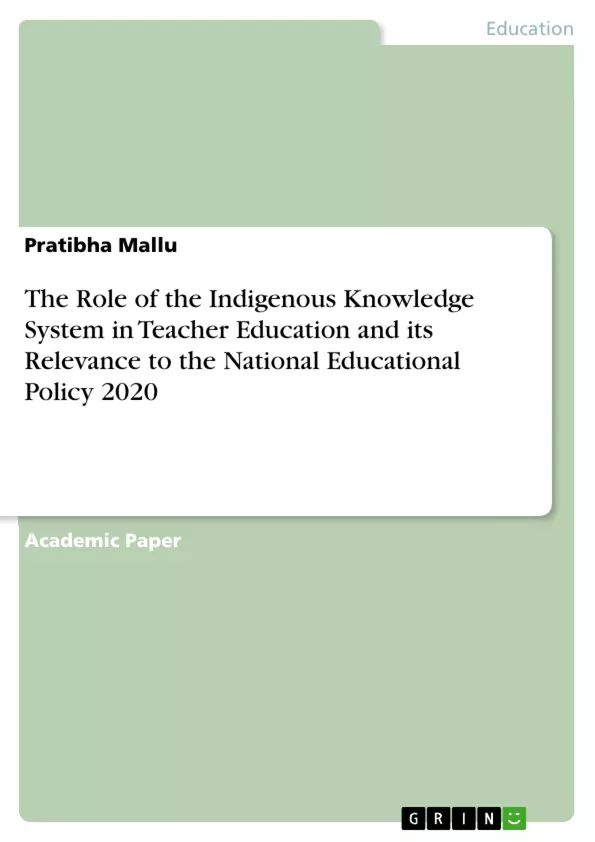The present paper is an attempt to find out how far the indigenous knowledge is helpful in the teacher education relating it with the National Educational Policy 2020. Formal and informal interviews have been conducted through both online and physical modes from different parts of India. Some of these teachers have been teaching in schools and the others in the universities for the local as well as the non-local students. Teachers’ opinion is analysed qualitatively. Research review from different parts of the world is considered.
Inhaltsverzeichnis (Table of Contents)
- Abstract
- 1. Introduction
- 2. Literature review
- 2.1. Research in India
- 2.2. Research in Australia
- 2.3. Canadian Research
- 2.4. Research in USA
- 3. Research methodology
- 3.1 Teachers' profile
- 4. Analysis of results
- 5. Discussion and conclusion
- References
Zielsetzung und Themenschwerpunkte (Objectives and Key Themes)
This paper aims to examine the role of indigenous knowledge systems in teacher education, particularly in relation to the National Educational Policy 2020 in India. It explores how indigenous knowledge can contribute to holistic and inclusive education, addressing the needs of indigenous students.
- The importance of indigenous knowledge in teacher education
- The relationship between indigenous knowledge and the National Educational Policy 2020
- The role of teachers in promoting holistic development of students
- The benefits of incorporating indigenous knowledge into the curriculum and pedagogy
- The need for a holistic approach to teacher education that includes both modern and traditional knowledge.
Zusammenfassung der Kapitel (Chapter Summaries)
The introduction defines indigenous knowledge and its significance in education. It emphasizes the need for teachers to possess both modern and traditional knowledge to provide holistic education. The paper explores the National Educational Policy 2020's vision for inclusive education and its emphasis on recognizing and nurturing the unique capabilities of each student. The literature review section analyzes research from various parts of the world, highlighting the role of indigenous knowledge in education. The research methodology section outlines the methods employed, including interviews with teachers from different regions of India. The analysis of results and discussion sections are not included in this preview.
Schlüsselwörter (Keywords)
The key terms and focus areas of this paper include indigenous knowledge, traditional knowledge, tribal education, National Educational Policy 2020, teacher education, holistic education, inclusive education, and cultural competence.
- Quote paper
- Dr. Pratibha Mallu (Author), 2022, The Role of the Indigenous Knowledge System in Teacher Education and its Relevance to the National Educational Policy 2020, Munich, GRIN Verlag, https://www.grin.com/document/1185718



